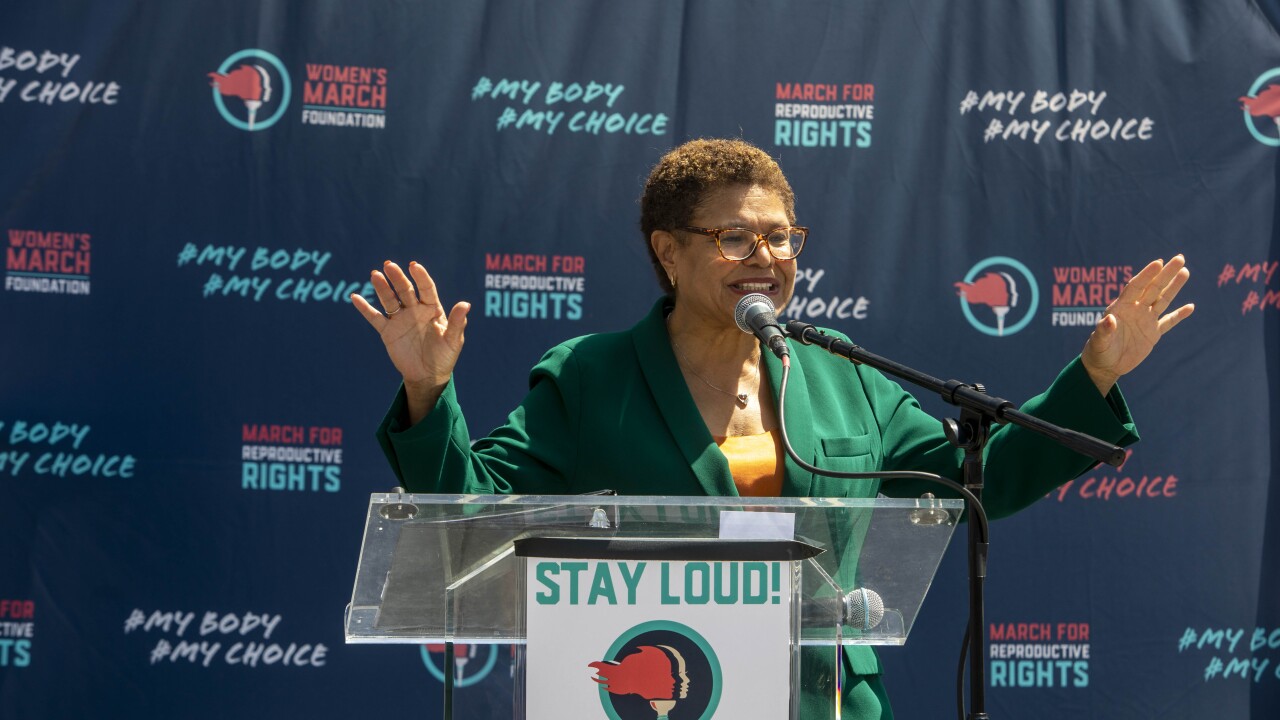
Teetering Puerto Rico could benefit from an independent control board similar to what Congress implemented for Washington, D.C., in the mid-1990s, former U.S. House Speaker Newt Gingrich said in New York.
"The federal government should actually re-engage Puerto Rico [and] insist on a genuinely independent control board, probably modeled pretty much on the D.C. model," Gingrich said at a Dentons municipal conference in midtown Manhattan on Thursday night. "In fact, the D.C. model is also in part modeled on what happened here in New York, so there's a lineage of competency."
Gingrich, a Republican from Georgia, was in Congress from 1979 to 1999 and House speaker his final four years in office. He is a senior advisor at Dentons, which built out its restructuring footprint through a recent merger with McKenna, Long & Aldridge.
Puerto Rico is struggling with about $73 billion in debt.
"Puerto Rico is like D.C. in that it is a uniquely federally effective institution," said Gingrich. "It's not a state. It doesn't have the strengths that states have. It doesn't have a century of experience having to stand on its own."
Gingrich said the federal government erred in the 1990s by withdrawing incentives for economic activity. He favors suspending the corporate income tax in Puerto Rico and waiving the minimum wage in the commonwealth.
"It's much cheaper for us to tap capital investment in Puerto Rico than to increase federal grants to sustain a welfare system in Puerto Rico," he said.
Congress created a five-member panel that oversaw daily management of most D.C. functions from 1995 to 2001 as the district confronted a deficit of nearly $800 million.
The board is now dormant, but it could be resurrected should a new crisis emerge.
Anthony Williams, the control board independent chief financial officer at its inception and later D.C.'s mayor from 1999 to 2007, called his approach bipartisan and non-ideological.
"A lot of people criticized me saying, 'Oh the mayor, the CFO, he's just a technocrat, he's not ideological. My answer is yes, that would be me," said Williams, also a Dentons senior advisor. "They didn't hire me, they didn't elect me, to fight ideological battles."
When New York City was on the brink of bankruptcy in the mid-1970s after bankers told city officials they would stop underwriting bonds and notes, the state created the Municipal Assistance Corp. and the twin New York State Fiscal Control Board. MAC, which sold $10 billion in bonds to help the city remain solvent, dissolved in 2008.
"What MAC together with the FCB did was get the New York situation under control," said Dentons partner Jon Ballan, who also sits on the board of the Metropolitan Transportation Authority. "New York was running massive budget deficits, they were rolling over short-term notes, using proceeds of notes to finance working capital and the city was in a serious crisis, financially."
Mark Kaufman, a Dentons restructuring partner and the lead counsel for the financial recovery team in Harrisburg, Pa., said the threat of a bankruptcy filing brings parties to the table, as it did in Harrisburg.
"If you have the threat of a [Chapter] 9, you have the capacity to bring people to the table because the certainty is not there," he said. "That breeds a good reason to talk about compromise and avoid the cost and expense and the delay of a 9."





